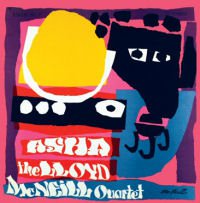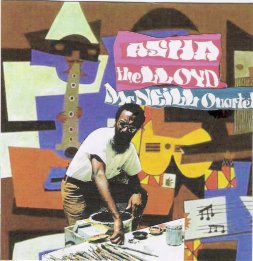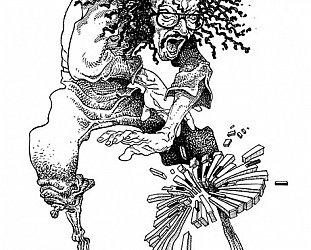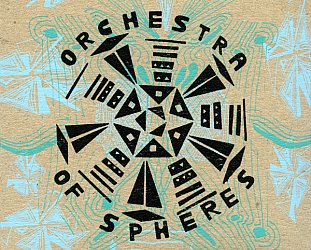Graham Reid | | 2 min read
Lloyd McNeill: As a Matter of Fact

Jazz flautist Lloyd McNeill lived the
kind of life only possible in his era: he counted among his friends
in the Sixties and Seventies Pablo Picasso (when they both lived in the south
of France, McNeill also being a painter), jazz musicians such as
Cecil McBee and Ron Carter, singer Nina Simone and many in the Civil
Rights movement.
He spent time as a Navy reservist, was
well-traveled (West Africa and Brazil), played in a band with expat
Ethiopian saxophonist Mulatu Astatke, studied under Eric Dolphy,
became a university professor . . .
One of those annoyingly gifted,
inter-disciplinary types – poet, painter, photographer, composer,
performer, writer, you name it – he also founded his Asha music
label in 1969 on which he recorded his often groovy, spiritually cool
and hot swinging funky jazz.
That said, you'd be forgiven for not
ever having heard a note: the reissued Asha by the Lloyd McNeill Quartet
originally only had a pressing run of 1000.
Once you take out copies for friends I
suspect damn few even appeared in the stores of his hometown of
Washington DC, let alone in a bin near you.
Listened to at this distance – 40
years on – the album evokes that era when swinging flute was a
frontline instrument (for Dolphy, Charles Lloyd, Herbie Mann and
others) and the jazz contract hadn't been yet extended into jazz-rock
fusion.
Here the quintet – which includes hot
pianist Gene Rush, and bassist Steve Novosel who went on to play
alongside Rahsaan Roland Kirk, McCoy Tyner, Sonny Rollins and other
jazz giants – looks to Thelonious Monk (on As a Matter of Fact)
and Latin influences, as much as swirling post-bop.
And the closer is a 10 minute evocation
of Warmth of a Sunny Day. It is certainly that as McNeill's breezy
flute weaves and skitters like a leaf in the wind.
But he also ploughs deep into a groove
for Dig Where Dat's At, a 3.30 slice of the kind of jazz-pop which
could appear as the theme to a particularly switched-on arts
programme on television. The title track is a very cool (emotionally
and metaphorically) piece which owes a little to the soaring quality
of Indian flute music.
What isn't here – and no one says it
has to be – is some sense of the turbulent political era in which
this album appeared: 1969 was an explosive one for black Americans
and yet McNeill's music doesn't touch on it.
Perhaps at the time he was offering
music as a balm.
In that he might not have succeeded at
the time, but he does now.
Asha is not a lost classic, but it is certainly an album that deserved wider currency than his small indie label could offer.
That it has finally been given that is
excellent news indeed.







post a comment